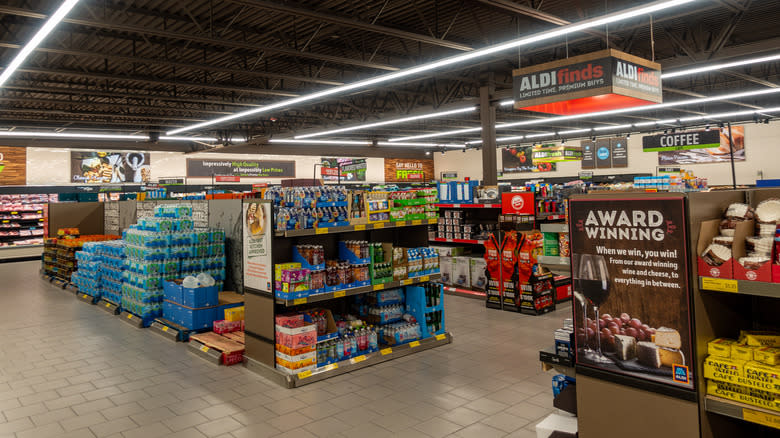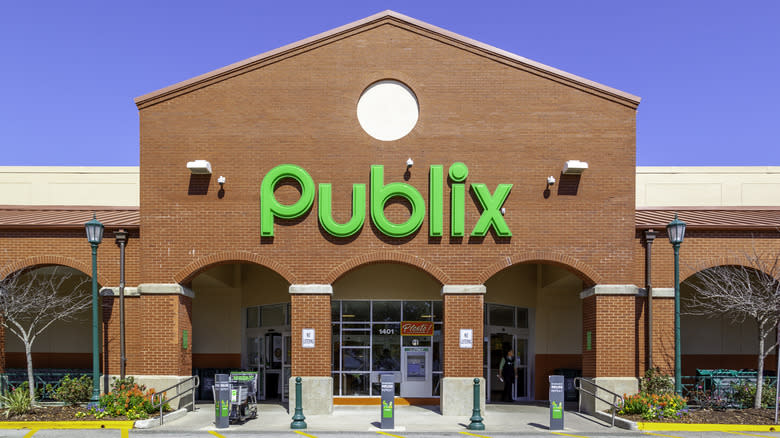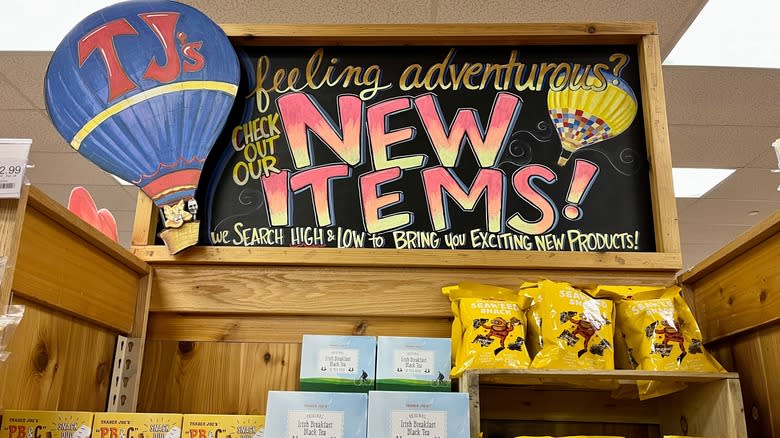What Grocery Stores Are Considered Aldi's Biggest Competitors?

With its amazing prices and compact stores, Aldi is anything but your average grocery store. While it has all of the same main departments as the usual supermarkets -- meat, dairy, baked goods, produce, and shelf-stable foods -- there are quite a few noticeable differences. The selection is smaller, for example, which helps keep prices, as well as waste, down. There are fewer major name brands available, which also affects prices positively. As a result, the grocer's average store is around 12,000 square feet, significantly less than most others.
But Aldi's small size doesn't keep it from competing with larger stores. Thanks to its big discounts, it's probably safe to say that the chain's biggest competitor is Publix -- and that's in spite of the fact that Publix stores are often four times larger, at an average of 40,000 to 60,000 square feet. That's a lot to compete with, but with Aldi's recent acquisition of Winn-Dixie and Harveys Supermarkets, it isn't shying away.
Read more: The Most Beloved Products At Aldi, According To Shoppers
A Rivalry Set In The Southeast

Although Illinois currently has the most Aldi stores of any U.S. state, the largest concentration overall -- as well as the most growth -- happens to be in the Southeast. In August 2023, Aldi acquired 400 Winn-Dixie and Harveys locations in states such as Alabama, Florida, Georgia, Louisiana, and Mississippi. That region also happens to be Publix's stomping grounds, which sets the stage for some fierce competition. Consideration scores, which measure whether consumers would consider shopping at a store the next time they do groceries, give a picture of this rivalry. Publix may have the highest consideration score in the Southeast, at 57%, but Aldi is next in line, at just under 36%, according to a YouGov survey. It might seem like a big gap, but the simple truth is, there just aren't any other competitors that match Publix's pull in the area. As Aldi grows, its consideration score will likely increase as well.
Aldi is already closing in when it comes to awareness. Again, Publix is the most recognized grocery retailer in the Southeast, but Aldi isn't far behind -- YouGov found brand awareness to be at 88% and 84%, respectively. With more stores planned in the near future and a well-known reputation for discount prices, Aldi isn't doing too shabby compared to the mega-sized supermarket chain.
Another Tiny Store With Even Tinier Prices

Zippia names Trader Joe's as a major competitor to Aldi, though they're both owned by the Albrecht family. While the two chains definitely evoke very different brand experiences, they actually have a whole lot in common, and even offer similar products. Like Aldi, Trader Joe's tends towards small retail spaces, heavy discounts, and limited selection. Both also have an extremely loyal base of shoppers (some might even say obsessed) and rank high in popularity amongst consumers, according to a YouGov poll. Aldi topped the entire list of grocery stores in the poll, with a 62% positive opinion rating, and Trader Joe's fell behind at fourth place with a 59% rating.
In a price comparison done by CNET, both stores offered roughly the same bang for your buck. So, it's actually not that surprising that Trader Joe's, which operates independently despite its ownership, is considered a major Aldi competitor, especially when taking into account their similar approach to keeping retail spaces much smaller than other supermarkets.
Read the original article on Daily Meal.

